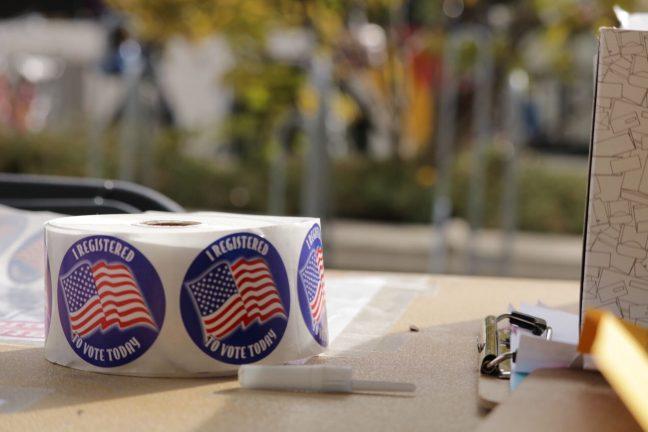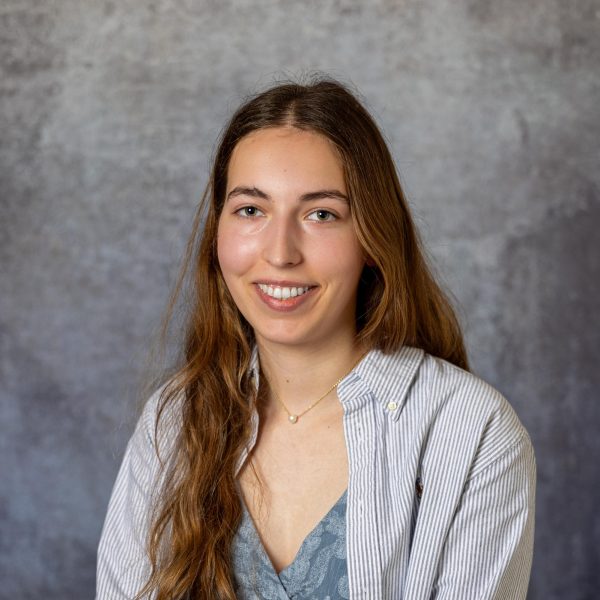Native American people were fully assured the right to vote by the Voting Rights Act of 1965, and currently there are an estimated 71,000 Native voters in Wisconsin, according to the Green Bay Press Gazette.
But injustice and prejudice toward Native American communities continue to exist, University of Wisconsin Student Voters Union co-President Kayley Bell said.
“Specifically, I know that even in the civic engagement, voting advocacy realm in general, there is definitely a gap,” Bell said. “That [Native American] community… is a group that is often overlooked in civic education.”
In Wisconsin, a tribal ID does qualify as a form of voter ID, but some tribes do not have official recognition status, so people in these communities may not have the same formal identification, Bell said.
Currently, the only Native American tribe in Wisconsin not recognized by the state or federal government is the Brothertown Nation, according to Wisconsin First Nations.
Wisconsin Conservation Voters Civic Engagement Director Anjali Bhasin said her organization has spoken with Native American people who say their tribal IDs do not always work as a form of identification.
“We talk to folks who have said their tribal IDs have been turned away,” Bhasin said. “I think in some areas there’s hostility towards tribal communities.”
In Southwest states, far polling locations may also cause challenges for Native voters, but in Wisconsin, registering to vote is often the bigger issue, Bhasin said. Wisconsin state laws can pose barriers for Native people living on reservations who need a proof of residence — which is required in order to register.
“In some areas, folks don’t have traditional addresses,” Bhasin said. “They have what people might call a fire address or a 911 address. It’s an address that can be used for emergency services.”
Fire addresses are very common in Native American communities, but many Native people rely on PO boxes to receive mail, Bhasin said. If most mail is sent to a PO box — which does not indicate where a person physically lives — Native people may not have the proof of residence required for voter registration, Bhasin said.
Bhasin said WCV has seen this problem firsthand when attempting to help Native American people register to vote.
These issues also hinder Native people from registering to vote online, Bhasin said. Even if a Native person’s fire address is listed on their Wisconsin driver’s license, their municipal clerk may not have submitted the address to the Wisconsin Elections Commission, so the Native person would then have to register by mail or another more cumbersome process, Bhasin said.
In Wisconsin, over 70% of voter registrations are completed online, but in Menominee County — an area primarily dominated by the Menominee Reservation — 7% of registrations are completed online, according to a WCV and Native American Rights Fund memorandum.
Bell said there is much more UW can do to address some of these barriers for Native American students.
“The City of Madison is the entity that actually administers our elections, but the university does have a key role in supporting engagement,” Bell said. “And I will say there are certain things the university does that are not currently in compliance with the recommendations of the Department of Education.”
For example, UW partners with Federal Work-Study, a Federal Student Aid program that helps the university pay for some of its students’ employee wages, according to the Office of Student Financial Aid.
The Department of Education provides this funding to help students secure part-time jobs — including working to assist with voter registration — but the university does not currently utilize these employees, Bell said.
Bell also said the university’s Wiscards, or student IDs, are not valid voter IDs but could comply with identification standards if they included a cardholder signature and a two-year expiration period — Wiscards currently expire five years after the date they were issued.
“If UW-Madison were to make its student ID voter-compliant, it would significantly reduce barriers to student voting,” Bell said.
Bell said many people in the U.S. seem to have a misconception that the federal government does not infringe on Native American rights or sovereignty anymore, but this is still an ongoing issue, she said.
UW professor of law Richard Monette said it is important to recognize that Native American voting rights are a complex topic due to the distinction between state and federal government.
“The difference is the residency [of Native American people],” Monette said. “We’re talking about those that reside in the state versus those that reside in the reservation. And those are different.”
Native American people who reside outside of a reservation are equivalent to any other racial minority in terms of voting rights, Monette said. But, those who live in a reservation are part of a sovereign nation — which complicates matters regarding voting because, by definition, a sovereign nation has the right to govern itself, Monette said.
Monette said the U.S. Founding Father and Chief Justice John Marshall, in his Marshall Trilogy, wrote that over time, Native American people will become incorporated politically into U.S. society — which contradicts the idea of sovereignty.
Monette said when Native American people who live in reservations advocate for the right to vote in state elections, they are buying into this assimilationist incorporation doctrine and colonization Marshall proposed over 200 years ago.
But, Native American people who live in reservations should not be prevented from voting for federal representatives, Monette said. Tribal sovereignty only answers to the federal and not the state government, as determined by the 1980 Washington v. Confederated Tribes U.S. Supreme Court.
Still, Native American people encounter difficulties when voting for federal officials, Monette said.
“The Federal Constitution says that the states will conduct the elections, so they [states] generally don’t put a ballot booth on the reservation,” Monette said. “Then, these reservation people [have] got to leave, go to communities where they are treated extremely poorly.”
This inaccessibility to polling places and animosity towards Native American people can hold them back from voting, Monette said.
Bhasin said WCV has made significant steps in preserving Native American people’s voting rights, but she is frustrated with the government’s lack of progress in inclusive policymaking.
“I think the way the voting laws have been rewritten in our state — in the last decade — there have been more barriers put up,” Bhasin said. “I would say access [to voting] is harder now than it was 15 years ago. And I would say that for voters across the state.”



